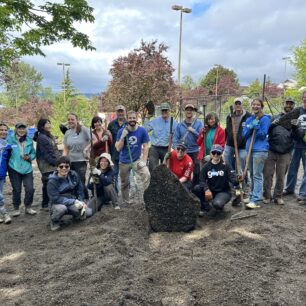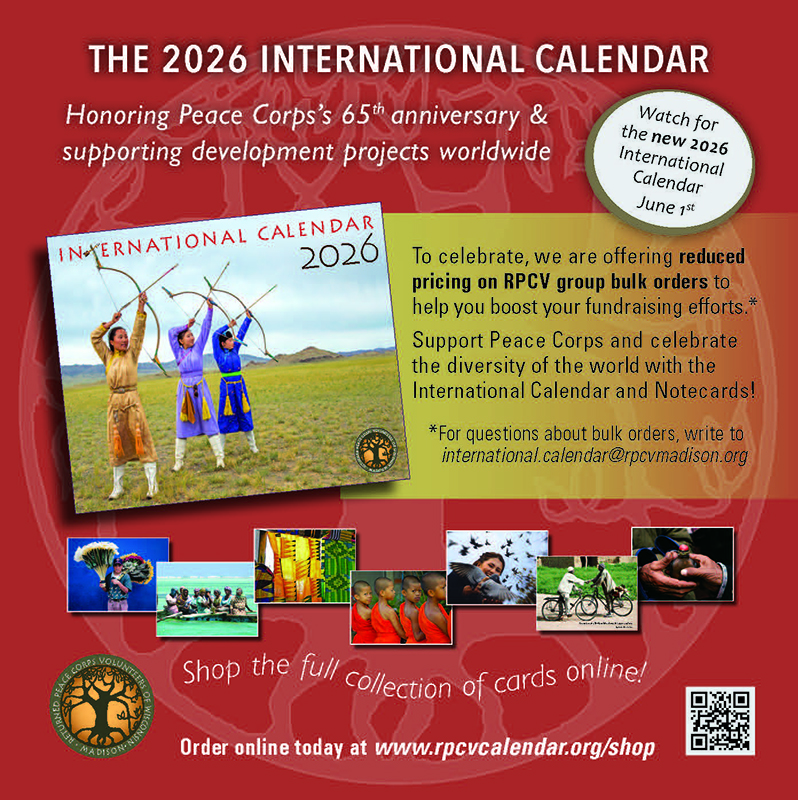
Peace Corps Off-Broadway
A car crash, a cryptic State Department operative, and a rapidly shifting world order set the stage for RPCV Rajiv Joseph's new play
On the eve of the new millennium, a young American Volunteer stationed in Dakar finds himself pulled into an unexpected web of intrigue. A car crash, a cryptic State Department operative, and a rapidly shifting world order set the stage for Dakar 2000, the latest play from Rajiv Joseph. But this is more than just a thriller: it’s a work shaped by lived experience. Joseph, a Returned Peace Corps Volunteer who served in Senegal from 1996 to 1998, has long credited his time abroad as a defining force in his writing. “Being in Senegal, more than anything else in my life, made me into a writer,” he has said. Immersed in a culture rich with storytelling traditions, he gained a deeper appreciation for language, narrative, and the ways in which cross-cultural encounters shape identity. His years in West Africa gave him firsthand insight into the rhythms of daily life in Senegal, the intersections of diplomacy and service, and the complex realities that come with being an outsider navigating a new world.
Joseph is not the first RPCV to channel international service into a writing career. The Peace Corps has long served as an incubator for storytellers, with Volunteers returning home to share their experiences through literature, journalism, and theater. Playwriting is just one avenue through which these stories have taken shape. The tradition of Peace Corps storytelling includes memoirists like Moritz Thomsen (Living Poor: A Peace Corps Chronicle), novelists like Paul Theroux (Burma Sahib), and short story writers like Bob Shacochis (Easy in the Islands). More recently, writers like Stefanie DeLeo, an RPCV in South Africa, have explored themes of communication and identity through theater. Whether through fiction or nonfiction, their works illuminate the challenges and triumphs of service abroad. They offer glimpses into cultures unfamiliar to many readers, explore the nuances of diplomacy and development work, and reflect on the personal transformations that come from crossing borders.
Rajiv Joseph is the next is a long line of RPCV playwrights. Other RPCVs have turned to the stage to explore the complexities of cross-cultural experiences, using theater to examine diplomacy, identity, and moral dilemmas, themes shaped by their service around the world. This powerful medium for sharing their experiences has been used by Stefanie DeLeo, who wrote Worth a Thousand Words, a play exploring autism and nonverbal communication inspired by her work with neurodivergent students. Howard Ashmanan, an American playwright and lyricist best known for his collaboration with composer Alan Menken on Disney animated films, was a Volunteer in Burkina Faso who contributed to the creation of The Little Mermaid, Beauty and the Beast, and Aladdin. Before his success with Disney, Ashman wrote the book and lyrics for the musical Little Shop of Horrors, which became a significant off-Broadway hit. Other RPCVs have incorporated global themes into their plays in subtler ways, using their service as a foundation for exploring identity, power, and human connection. George Packer, an American journalist, novelist, and playwright is known for his play Betrayed, which portrays the lives of Iraqi interpreters during the Iraq War. His time in Togo with the Peace Corps contributed to his deep understanding of international affairs and human rights issues, which he brings to his writing today for the The New Yorker. Their works continue the Peace Corps’ storytelling tradition, proving that the experiences of volunteers don’t just shape the individuals who serve: they also shape the stories that reach the world.
With Dakar 2000, Joseph continues this tradition, blending personal experience with fiction to deepen our connections with our world and the people which occupy it. His play speaks not only to the unique moment of Y2K, a time filled with uncertainty and shifting global dynamics, but also to broader questions that remain relevant today: How do we engage with the world beyond our borders? What responsibilities come with that engagement? And what stories emerge from those experiences? As Dakar 2000 makes its debut at the Manhattan Theatre Club this month, it joins a growing canon of works shaped by the voices of RPCVs; stories that remind us that service does not end when Volunteers return home.
Related Articles

Made in America
Charlie Clifford (Peru 1967–69) is the founder of Tumi Inc., a global travel luggage brand, as well as Roam Luggage.…

“Bigger Than Peace Corps”
California Service Corps is the largest state-based service program in the U.S. , with more than 10,000 volunteers across the…

Signal Boost
The digital world is awash in voices seeking monetary reward or improved social status, as the online acronym goes, IRL…

Garden of Refuge
As part of our commitment to continued service, the Seattle Peace Corps Association (SEAPAX) is partnering with World Relief Western…





